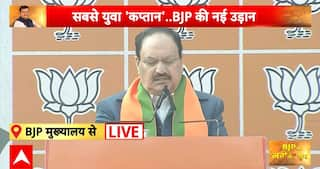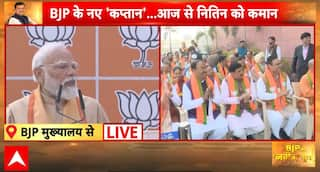Political instability hovers over Arunachal due to 'unsettled merger'

New Delhi [India], Dec.9 (ANI): Arunachal Pradesh may be heading towards another constitutional crisis as a recent Gauhati High Court order has clearly stated that the merger of 43 Indian National Congress (INC) MLAs did not take place in accordance with the Tenth Schedule of the Constitution.
The Itanagar permanent bench of Gauhati High Court on 22 September disposed of the WP(C) 613 (AP) of 216 case and left it to the State Assembly Speaker to decide the merit and validity of the 'merger' of Congress MLAs with the PPA last year.
"The contentions raised by the petitioner that the claim of merger by 43 INC MLAs as flows from different resolutions of 16.09.2016 does not satisfy the requirements of a merger, both factually as well as under the law, as well as the contention that the 43 MLAs having been elected on the INC tickets by taking a recourse to the policies of the INC, which were found acceptable by the electorate, the INC would suffer loss and injuries on their claim of merger with the PPA, would now be taken up by the petitioner and other similarly situated persons of the INC before the Speaker, while deciding the petition for disqualification dated 14.10.2016, which had already been filed", the court said.
"This court does not express any opinion on its merit either on the validity or the acceptability of such contentions and it would for the Speaker to consider and decide the same. In terms of the above, the writ petition stands disposed of."
The petition was filed by former Congress President Padi Richo against the state assembly Speaker, secretary, Election Commission of India and 43 MLAs.
Legally, the main significance of the Arunachal Pradesh verdict lies in the clarity it provides on the Speaker's role. Following the decision of the Gauhati High Court, the 'unsettled merger' issue has queered the political pitch by bringing the issue to the forefront once again in a politically sensitive state.
To understand the matter clearly, one needs to see it in the context of the formation of the Sixth Legislative Assembly of Arunachal Pradesh as per the elections held in April 2014. The INC got 42 seats, the Bharatiya Janata Party (BJP) secured 11 seats, the People's Party of Arunachal (PPA) got five seats and two seats were won by Independents.
The leader of the INC, Nabam Tuki, formed the government and was sworn as the Chief Minister. However, on December 12, 2014, five PPA MLAs merged with the INC, thereby raising its strength to 47 members in the 60-member State Assembly.
Sometime in September 2015, with the support of 21 INC MLAs, 11 BJP MLAs and two Independent MLAs, Kalikho Pul revolted against Nabam Tuki. Then Governor, Jyoti Prasad Rajkhowa, preponed the assembly session, resulting in a strong protest from the Tuki camp, and inaccessibility to state assembly chambers. The deputy speaker had to conduct the session of the assembly in a Karate hall, where he declared Pul as the leader of the Congress Legislature Party via a composite floor test. Thereafter, president's rule was proclaimed on January 26, 2016, and lifted on February 19, 2016 at 5.30 p.m. On the same day, at 10.30 p.m., Pul took oath as the new chief minister of Arunachal Pradesh.
This development was challenged in the high court, which ultimately reached Supreme Court constitutional bench. The apex court in its order dated 13th July 2016 restored status quo ante and the Tuki-led government came back to power.
The matter did not rest here. After the Supreme Court order, on July 17, 2016, Pema Khandu was sworn in as the chief minister of the state with the support of 47 Congress MLAs.
On September 16, 2016, 43 Congress MLAs, including Pema Khandu deserted the INC and passed a resolution for a merger with the PPA. On the same day, Khandu and the 43 Congress MLAs filled Form III and Form I.
Accordingly, the speaker also gave a direction to the secretary of the state assembly to publish Bulletin Part-II in the gazette information given in Form 1 by the leader of the legislature party. They will be shown as PPA MLAs. Accordingly, no separate order recognising the merger may be issued," he said.
From the above, therefore, it becomes explicitly and apparently clear that the speaker kept his decision on the merger open by refusing to decide on it. It has further been observed that had a hearing been given, both sides would have got opportunities to present their respective positions. That would have settled the issue of the merger.
It seems that the issue of merger being undecided as required by law, there is in law no actual merger of INC MLAs with the PPA.
The high court has clearly stated in its order recently that no merger had taken place, and at the same time, refused to educate and decide upon the issue, saying that this would amount to usurping the power of the speaker to decide such matters.
In the present scenario, with the ball back in the speaker's court, the status of MLAs who went along with Pema Khandu to the BJP to form the government, still remains in limbo. Technically, they still continue to be Congress MLAs.
Arunachal is turning out to be one of those rare cases where the help of constitutionally appointed authorities has been used to allegedly subvert democracy and principles enshrined therein. So, this time, the million dollar question for every Arunachalee is whether the governor and or the speaker's office will remain neutral and act as per constitutional provisions.
The recent use of unparliamentary language on the floor of the assembly against the Leader of the Opposition Takam Pario has angered a large number of MLAs and civil society. Post the high court order, the humiliation of Pario has raised political temperatures in Arunachal Pradesh. Many civil society groups have sought the resignation of Chief Minister Khandu as well as an unconditional apology from him.
Pario belongs to the Abotani Clan which comprises of five major tribes of Arunachal (Nyishi, Galo, Adi, Apatani and Tagin) and are represented by 31 MLAs in the 60-member Assembly.
In case the alleged nine PPA MLAs and 32 BJP MLAs fail to return to Congress, their disqualification is eminent.
Arunachal is widely regarded as one of sensitive and peaceful Indian states. The situation there is reported to have become volatile due to the alleged misuse of powers by constitutional authorities like the governor, the speaker of the assembly and others.
The point to note is that the Speaker did not approve the merger of the 43 MLAs. The Gauhati High Court's judgement also endorses this. Therefore, the question of the speaker not passing an order for their "Ghar wapsi" to the Congress does not arise. An interesting point to note is that Pema Khandu did not take oath while shifted to the PPA and the BJP. It was a make shift move from Congress to the PPA and then onward to the BJP with the entire Council of Ministers lock, stock and barrel. It is clear that the former state governor failed to perform his constitutional duties.
The blatant misuse of constitutional authority over the past year to give legitimacy to a government that has not been elected, and is faced with an adverse court order and unable to halt ongoing political verbals, is costing this remote north east state considerably in terms of development and allied initiatives. (ANI)
This story has not been edited. It has been published as provided by ANI
Related Video
Breaking News: BJP’s New National President Pays Tribute to Party Workers and Leadership






























